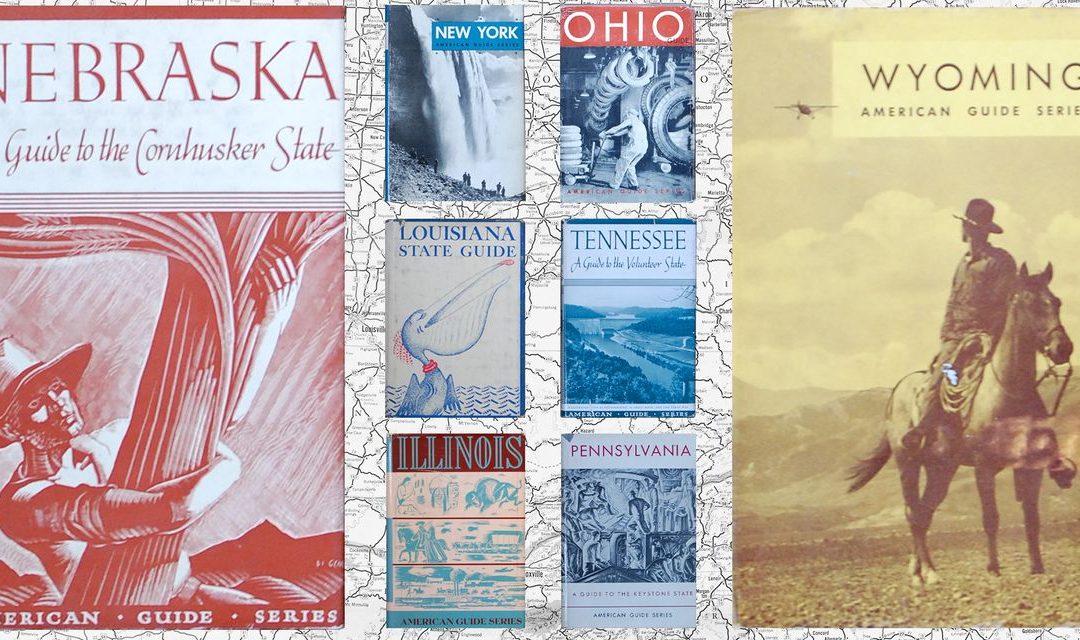[ad_1]
If most different writers are like me (and I believe they’re), they go away behind them a path of deserted initiatives. On a reasonably common foundation, one is hit with an concept for an essay, a narrative, a e book. One investigates till coming to the conclusion (more often than not) that this gained’t pan out or (not often) that it’s a go.
Amongst my very own gained’t-pan-outs was the Federal Writers’ Challenge. This was a Melancholy-era enterprise, a wing of the Works Progress Administration, through which unemployed writers (through the Melancholy, there was principally no different type) had been employed by the federal government to fan out throughout the nation, discover out what was occurring within the 48 states, New York Metropolis and the District of Columbia, and produce a thick guidebook to every locale—plus a great deal of further materials, together with intensive interviews with previously enslaved those who have since proved invaluable to students. An enchanting matter, to make certain, particularly contemplating that the American Information collection has subsequently taken on the aura of a traditional—usually reprinted, and galvanizing the likes of John Steinbeck and William Least Warmth-Moon in their very own journey books—and that the younger women and men who labored on the venture included such future eminences as Nelson Algren, Saul Bellow, John Cheever, Ralph Ellison, Zora Neale Hurston, Kenneth Rexroth, Might Swenson, Studs Terkel and Richard Wright.
I investigated lengthy sufficient to resolve that the vein had been sufficiently mined by others and wouldn’t reward additional excavation by me. Truly, I feel I made a decision this after taking a look at only one e book, Jerre Mangione’s “The Dream and the Deal” (1972). Mangione was one other of these younger writers employed by the venture, in his case for an government place; he would go on to jot down extremely praised novels and memoirs. Regardless that it was a long time previous, his historical past of the FWP, moreover being knowledgeable by his personal expertise, stood up as being solidly researched, and intelligently and gracefully written: in brief, definitive. Furthermore, it was adopted by a number of educational works on the venture and some in style ones, notably “Soul of a Folks” (2009), by David A. Taylor, which impressed a documentary of the identical title on the Smithsonian Channel.
So I really feel I made the suitable transfer in occurring to different ventures. However right here’s the factor: Scott Borchert additionally made the suitable transfer in pursuing this one. His “Republic of Detours: How the New Deal Paid Broke Writers to Rediscover America” reveals that when author meets a topic for which she or he has a ardour, the result’s virtually at all times going to be advantageous, irrespective of that others have handled it earlier than. As he observes, “simply as you would possibly take many routes throughout a state, selecting the place to cease and what to go by, buying and selling detours and lifeless ends, so there are numerous doable methods to inform this story.”
Mr. Borchert’s personal manner is marked by a number of sign attributes. He’s wonderful at character research, providing contemporary takes and materials on acquainted figures like Algren, Hurston and Wright, and introducing us to lesser-known ones like Vardis Fisher, a cranky novelist who just about single-handedly wrote the Idaho information, and, most essential, Henry Alsberg, the shambling, closeted veteran journalist and litterateur who served because the FWP’s director and, by some means, stored all of it collectively.
[ad_2]
Source link


Neue Kommentare